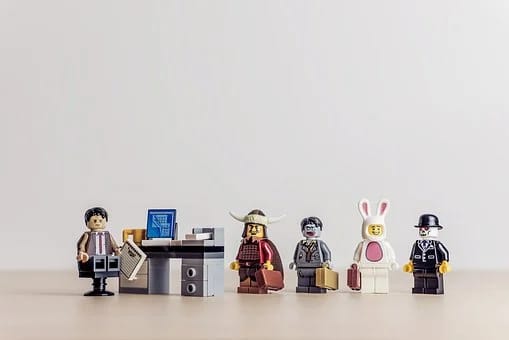IT People
What comes to mind when you think of an IT person? Is it the nerd who spends most of their time on the computer tinkering and exploring new technologies? Is it the geek who is constantly creating new tools and demos? Is it the gamer who just upgraded to liquid cooling and can't stop talking about it? Is it the person in suspenders, jeans, button-down shirt with a pocket protector?
Something different comes to mind for each person when the think of an IT person.
What prompted this article?
I have conversations with people all of the time, and when they learn that I work in IT, they immediately begin asking me questions they think are IT related. "Hey, can you help me with my iPhone?" or "Hey, can you take a look at my grandson's computer?".
Why is this a problem?
When people think of someone who works with computers or technology, they consider that person a technology magician. These people immediately assume that this person is capable of fixing any problem if the device uses electricity.
This is a problem because of the way that people view IT personnel and the negative feelings they express when the IT person is not an expert in every field. The IT person who can fix your computer when it's slow may not be able to write a website or program a VLAN on managed switch and that's okay.
IT is a very broad term
Information Technology (IT) is used to cover the scope of a swath of computer science topics lumped under a single term. Sometimes it's also referred to as Computer Science, but just as in the medical field, we each have our own specialty. I was not taught in my Bachelor or Master degree anything to do with fixing computers. My majors focused on programming languages, website development, application development, network management, databases, project management, product procurement, communication and technical writing.
IT can mean Artificial Intelligence (AI), Cloud Computing, Virtualization, Biometrics, Data Science, Machine Learning, CyberSecurity, Augmented/Virtual Reality, Mobile devices, Networking, Servers, Internet of Things (IoT), Web development, Programming, Printers, and so many other topics.
How companies see you
Depending on whether you have an entire IT department or a one man show, you can be viewed slightly differently to the company. Most companies today realize that they depend on their technology to operate their business, just look what happens when services such as Amazon, Facebook, Instagram, etc. are down for even an hour. Businesses view IT as a necessary asset to keep their ships afloat, or as an insurance to keep things running until they are not. In which case they expect the IT department to be able to handle and resolve any issue that arises. This can be a problem for instance if the issue is network related and no current members of the IT department specialize in networking.
How employees see you
If you are an internal IT person for a company, you are generally seen as the go-to for anything technical or sometimes even slightly complicated.
Here's some of the thing's I've been called for or had tickets create for:
- The printer needs paper loaded 📝
- The printer needs toner changed 🖨
- The fire alarm is going off 🔔
- The music is too loud in the hallways 🎵
- The TV in the reception won't turn on 📺
- A computer would not power on when the power cord was plugged into a power strip that was plugged only into itself and not the wall. 😳
What can you do about it?
Try your best to diversify your training and understanding, but ultimately establish the skills in which you excel and specialize and realize your unique specialty as quickly as possible. In the typical company there are multiple IT employees, each with their own unique skills and expertise. Knowing your profound skill will help you align yourself with job opportunities best suited for your skills.
Conclusion
Identify your specialty niche within the information technology / cybersecurity space and pursue it directly. Most people don't get into IT to "fix computers", while I can and have for years, it's not a skill I enjoy so I no longer advertise it.
Discuss
I'd be interested to hear your take and opinions on this subject.






Top comments (0)
Some comments may only be visible to logged-in visitors. Sign in to view all comments.